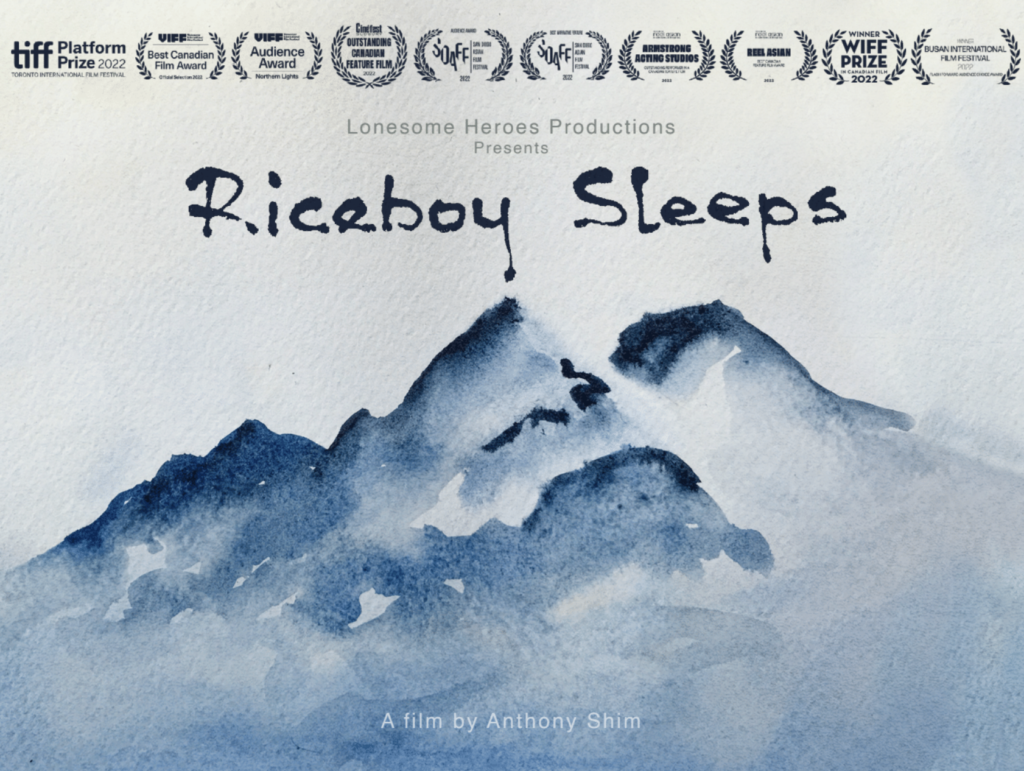By Ailsa Davies (she/her)
This review is a part of our Glasgow Film Festival review series. The Film Festival is running between 01/03/23-12/03/23, don’t miss out and go and see some incredible new films.
Slowly tender and crushing, Riceboy Sleeps accompanies single mother, So-young, and son, Dong-Hyun, through years of quiet domesticity, insidious micro aggressions and intense tragedy. Situated throughout the 90s, in a period of accelerating emigration from South Korea to Canada, both mother and son navigate the complex diasporic experience, as well as the intricacies of single parenthood.
Anthony Shims’s accomplished second feature has landed him the prestigious Best Canadian Film at the Vancouver International Film Festival, winning an array of other awards around the world and nominated for even more.
The film opens with multiple extended static shots, with the rural South Korean landscape steadying into focus. Overlayed with an omniscient voice, we are told So-young’s (Choi Seung-yoon) story of her husband’s suicide, and resultant position as a single mother within the first few minutes, as if it were stuff of folklore.
The pace is unhurried from the start. This dreamy folklore quality is deliberately cut off in the adjacent scene where her small son, portrayed by Dohyun Noel Hwang and later by Ethan Hwang, is seen frantically running away from his mother in contemporary Canada. The aspect ratio of the scene is suddenly squashed to 4:3, the colours saturated and the quality grainy, suffusing the imagery with nostalgia and underlining their new reality.
Throughout, mother and son exist in parallel. Whether occupying the same space or experiencing realities beyond each other, they remain connected in their shared hardships: separate endurances of racism in school and work, as well as their domestic divisions and misunderstandings.
We are permitted access, ebbing and flowing between an intimate understanding of the characters and a more voyeuristic view. We’re never quite fully let in, leaving the characters room to breathe. The camera peers around corners, glimpsing moments of intimacy. This is paired with continuous, wide camera shots, often on the character’s eye level, carving out space for the dialogue to unfold naturally, as well as the unhurried, shared tender moments and the quiet reactions.
At times this naturalistic awkwardness extends too far and the dialogue leaves too many gaps, feeling slightly stagey and clumsy.
Language remains political and consequential throughout, with the racist nickname ‘riceboy’ appearing only when Dong-Hyuan first enters school but reimagining itself in other micro aggressions throughout. We feel helpless but not manipulated into pitying him.
Anthony Shim positions most of the weight and tension throughout the narrative in what is not said. As a Korean Canadian immigrant himself, the use of simple and subtle metaphors express his own feelings of being ‘tucked away’.
We are privileged with a zoomed out lens on the characters’ lives, facilitating observation of slow but significant change. Shim employs a deliberate shift in framing, with the first act dominating the Caucasian characters and their voices when Dong-Hyuan is at school, to the face-on framing of the Korean protagonists by the second and third act.
Riceboy Sleeps foregrounds the complexities of immigrant experience without dishing out sympathies. We observe the characters experiencing gradual change, insidious oppression and moments of tender love. The touch is light but uncompromising.


